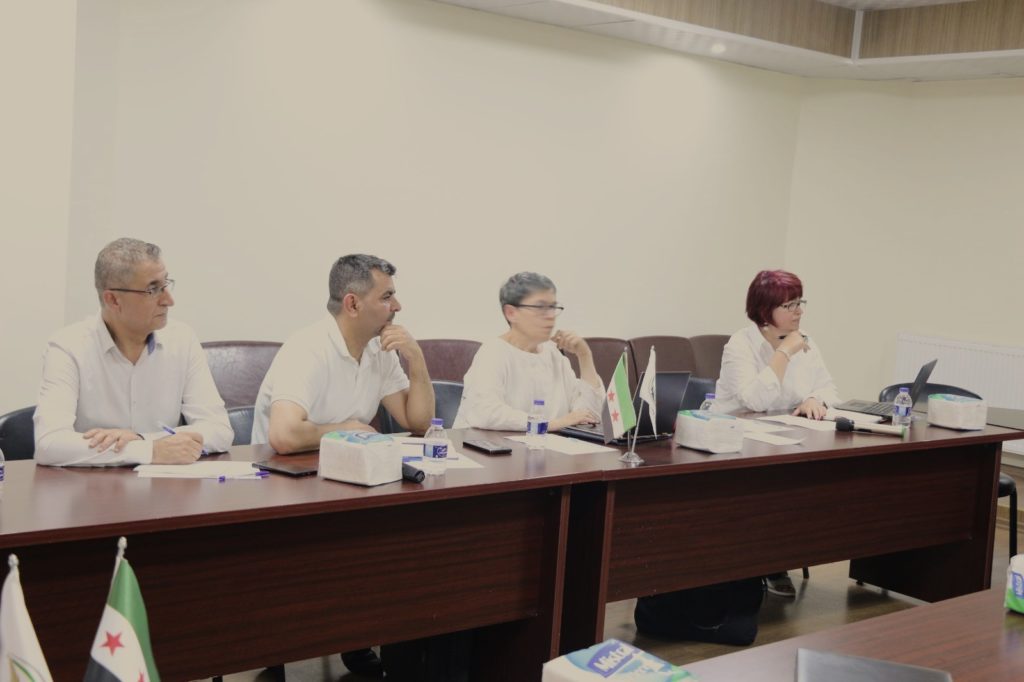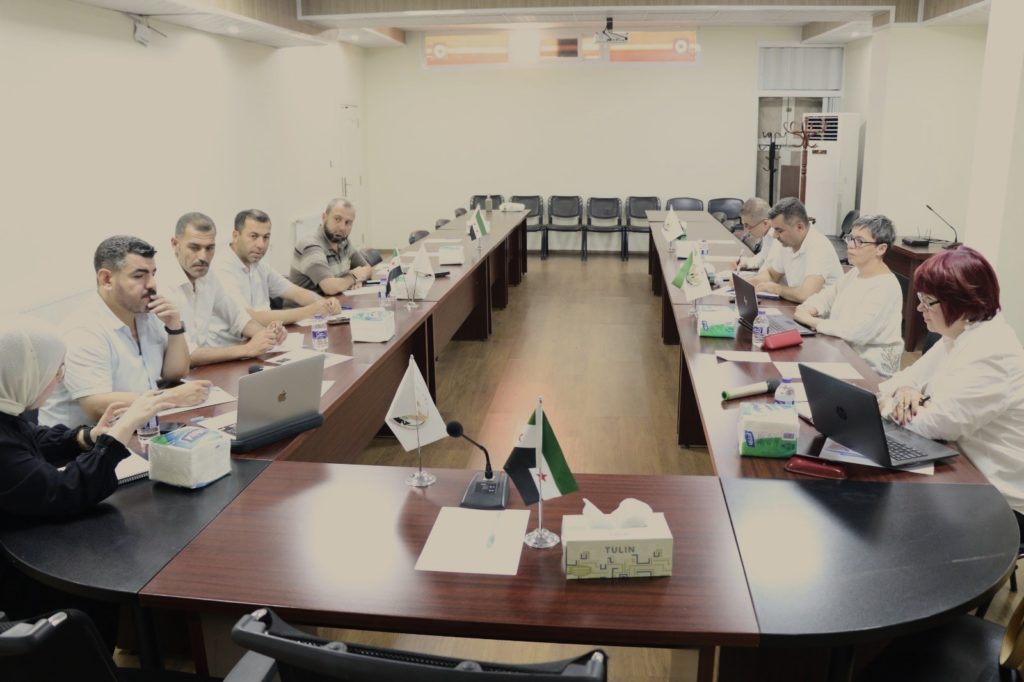Challenges and Prospects of Sustainability in Northwest Syria: Insights from a Workshop with the Ministry of Agriculture of the Syrian Interim Government
Key stakeholders from the Ministry of Agriculture of the Syrian Interim Government (SIG), Dr Mirela Barbu and Prof Natasha Slutskaya from the University of Sussex Business School, and Dr Shaher Abdullateef and Dr Manaf Aldakhil from the NGO “Syrian Academic Expertise”, came together to discuss the challenges of agricultural sustainability in Northwest Syria. Led by the SIG’s Minister of Agriculture, this engaging and thought-provoking workshop explored strategies to overcome obstacles to sustainable development in the region.


How can sustainable agriculture thrive in regions affected by protracted conflict? This was the core question driving the workshop held on 24 June 2024, in Gaziantep, Turkey. This workshop was supported by the SSRP Impact Fund.
Let’s take a closer look at the most compelling ideas discussed, shedding light on what’s needed to make agricultural sustainability a reality in one of the world’s most complex regions.
1. Why is sustainability crucial for post-conflict development?
One of the workshop’s main questions revolved around the balance between immediate recovery needs and long-term sustainability. Does prioritising immediate economic concerns mean sustainability takes a back seat? Participants agreed that despite pressing short-term needs, sustainable agriculture remains a fundamental pillar for stability and food security in post-conflict areas.
The SIG’s Ministry of Agriculture emphasised the critical role of developing their own institutions, highlighting sustainability as both a farming goal and a strategic tool for stability. Short-term agricultural projects, typically lasting 12 to 18 months, are widespread in the region. Yet, participants noted that sustainable progress requires long-term policies and initiatives that build continuity and resilience.
2. Agricultural projects and policies: what works and what doesn’t?
Agricultural initiatives in Northwest Syria are diverse, supporting wheat and potato farmers, livestock improvement, agricultural machinery, and extension services. Both the Ministry and NGOs implement various projects. Yet, challenges persist. In conflict-affected regions like the Peace Spring Operation area, sanctions have barred NGOs from operating, leaving vital agricultural projects underfunded and disconnected.
Another pressing concern raised was the uneven implementation of projects. Resources often fail to reach the most vulnerable areas, and without coordination among the various actors – NGOs, local councils, and the Ministry – the effectiveness of these projects is diminished. Workshop participants called for a unified agricultural platform to enable data sharing and coordination, minimising duplication and ensuring that aid reaches all areas of the region equitably.
3. Can humanitarian aid be counterproductive?
Participants explored the unintended consequences of well-meaning humanitarian aid. While food baskets and imported wheat provide relief, they often hinder the local agricultural market by reducing demand for local produce. For example, the import of wheat from Turkey negatively impacts Syrian farmers who struggle to sell their locally-grown wheat.
The Minister highlighted the need for careful regulation of aid, working in partnership with neighbouring authorities like the Turkish Agriculture Ministry to set export limits on fundamental crops. The goal is to ensure humanitarian aid complements rather than competes with local production, promoting self-sufficiency and resilience.
4. The importance of coordination and data sharing
A critical barrier to achieving sustainability in Northwest Syria is the lack of coordination among stakeholders. Many NGOs implement projects independently, without data sharing or alignment with government priorities. The example of vaccine distribution for livestock illustrated the risks: without proper coordination, faulty vaccines led to livestock illness, leaving local farmers blaming the Ministry for initiatives outside their control.
To address these issues, participants proposed creating an agricultural platform to centralise information on all initiatives, facilitating data sharing and fostering transparency. Strengthening links between local councils, NGOs, and the SIG’s Ministry of Agriculture would help align efforts and reduce gaps in services.
5. Climate change and financial challenges: what can be done?
Climate change is increasingly impacting agricultural sustainability in Northwest Syria. Issues like increased temperatures, irregular rainfall, and widespread drought have had devastating effects on crop yields. However, the Ministry lacks the resources to compensate farmers for losses, a safety net available in other countries.
The workshop attendees agreed on the need for climate-focused projects, such as agricultural weather forecasting stations and training programs for farmers. Raising awareness and equipping farmers with knowledge about changing agricultural techniques can mitigate climate impacts and support sustainability in the long term.
Key Takeaways and Future Directions
The discussions at the workshop in Gaziantep highlighted several recurring themes impacting agricultural sustainability in Northwest Syria:
Short-term projects vs. long-term impact: current projects are too short-term to be truly sustainable. Extending project duration and monitoring impact is essential to establish lasting change.
Coordination gaps: improved collaboration between NGOs, local councils, and the SIG’s Ministry of Agriculture is needed to prevent duplication, enhance accountability, and ensure equitable resource distribution.
Need for a common platform: establishing a centralized agricultural platform can help synchronize data and efforts across stakeholders.
Climate adaptation: implementing climate adaptation strategies, such as weather forecasting and farmer training, is crucial to climate-smart agriculture.